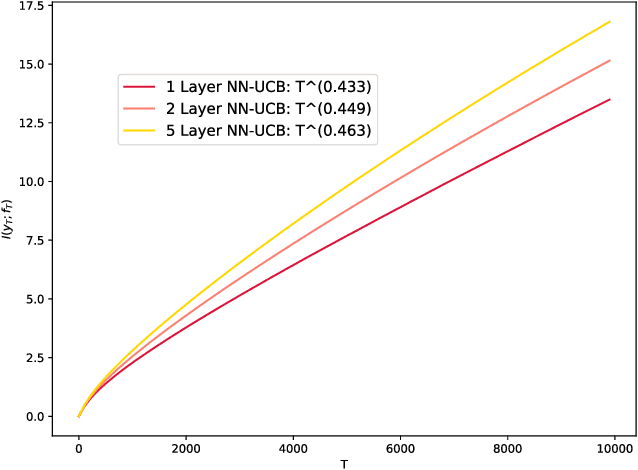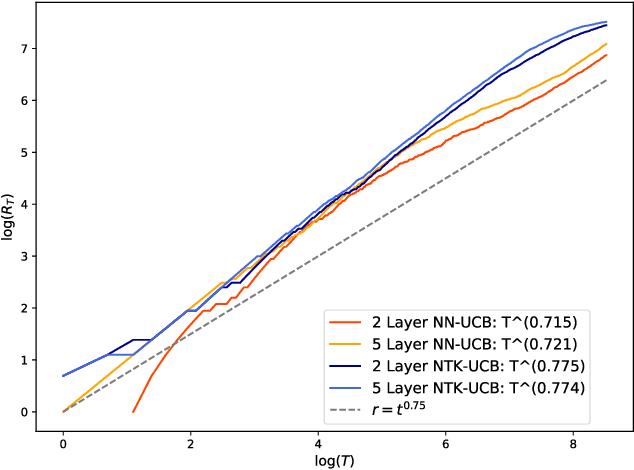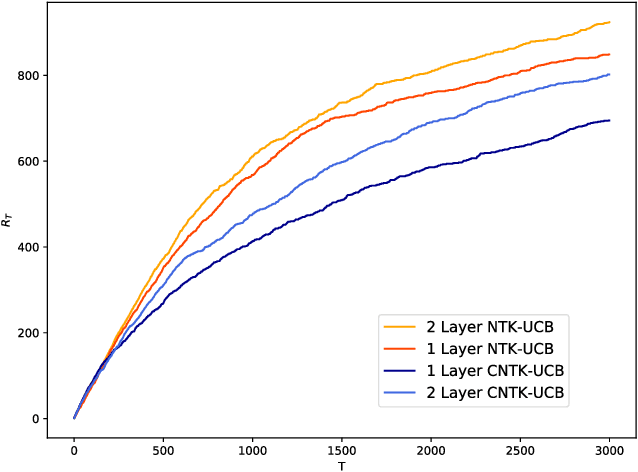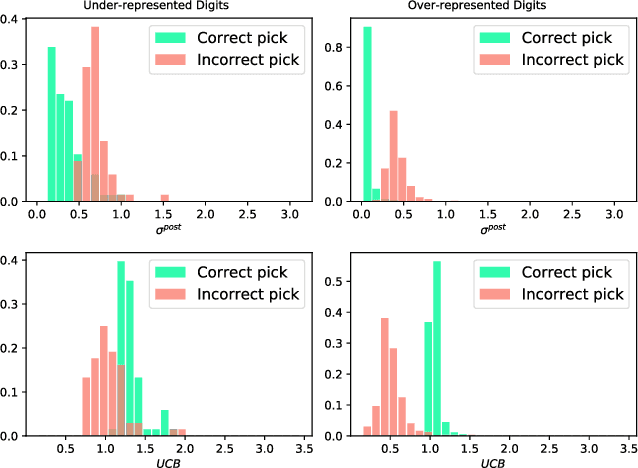Neural Contextual Bandits without Regret
Paper and Code
Jul 07, 2021



Contextual bandits are a rich model for sequential decision making given side information, with important applications, e.g., in recommender systems. We propose novel algorithms for contextual bandits harnessing neural networks to approximate the unknown reward function. We resolve the open problem of proving sublinear regret bounds in this setting for general context sequences, considering both fully-connected and convolutional networks. To this end, we first analyze NTK-UCB, a kernelized bandit optimization algorithm employing the Neural Tangent Kernel (NTK), and bound its regret in terms of the NTK maximum information gain $\gamma_T$, a complexity parameter capturing the difficulty of learning. Our bounds on $\gamma_T$ for the NTK may be of independent interest. We then introduce our neural network based algorithm NN-UCB, and show that its regret closely tracks that of NTK-UCB. Under broad non-parametric assumptions about the reward function, our approach converges to the optimal policy at a $\tilde{\mathcal{O}}(T^{-1/2d})$ rate, where $d$ is the dimension of the context.
 Add to Chrome
Add to Chrome Add to Firefox
Add to Firefox Add to Edge
Add to Edge